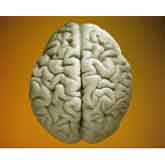The Blood-brain Barrier

The blood-brain barrier, which is composed of the lumenal and the ablumenal membranes, develops during the first trimester of human fetal life. However, if a foreign chemical has a molecular structure similar to one of the neurotransmitters used by the brain, the intruding chemical will often enter the brain undetected, which can wreak behavioral havoc. This is how hallucinations and other sensory perception distortions occur.
About the Author
Kenneth A Wesson
 Kenneth Wesson is a keynote speaker, writer and educational consultant for pre-school through university-level institutions and organizations. He speaks throughout the world on the neuroscience of learning and
methods for creating classrooms and learning environments that are 'brain-considerate.' Ken’s articles appear in educational journals.
Kenneth Wesson is a keynote speaker, writer and educational consultant for pre-school through university-level institutions and organizations. He speaks throughout the world on the neuroscience of learning and
methods for creating classrooms and learning environments that are 'brain-considerate.' Ken’s articles appear in educational journals.


